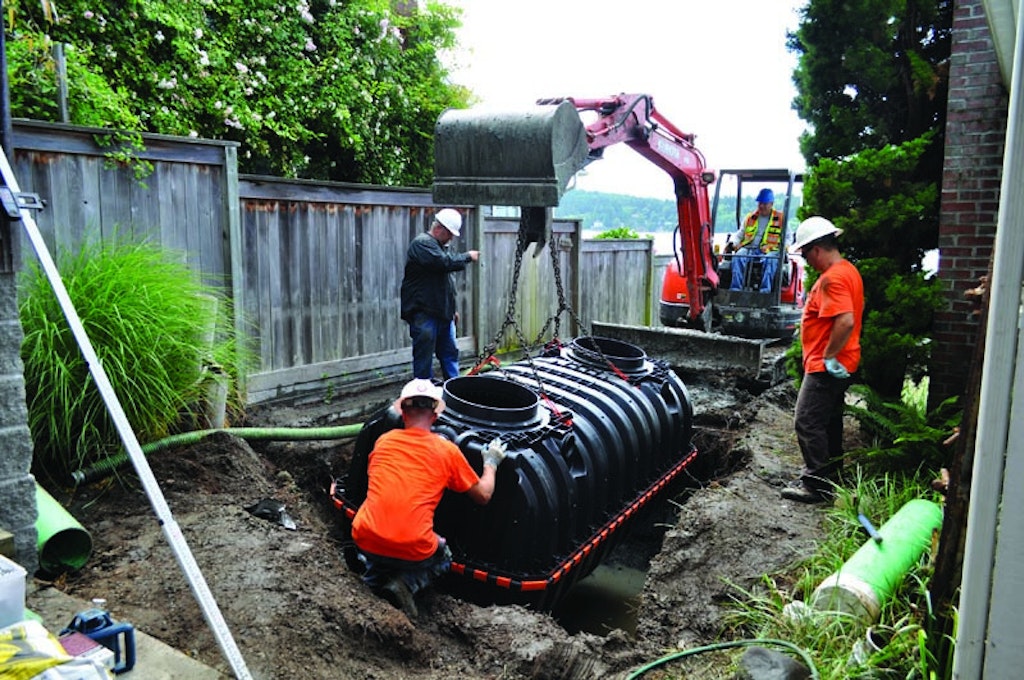In the realm of wastewater management Small septic systems, sometimes referred to as alternative or novel system for septic, are emerging as a viable option for those who live in areas with limited space or challenging terrains. They are designed to achieve maximum space efficiency and to adapt to a range of soil types, but providing efficient waste treatment and protection of groundwater. Let’s take a look at the complexities of these systems, the benefits, and the advanced technologies they use.
Small Septic Systems: They are vital
Installation of conventional septic tanks, which require a significant amount of land, is difficult for homeowners living on small lots. In this case, a small septic container might not be enough to handle household waste. Small septic systems comprehensively designed can address the issues with advanced and space-efficient solutions.

Alternative Septic Systems are Ideal for Small Lots
Optimized Space Utilization The most notable advantages of small septic systems is their compact design which permits them to be installed in restricted spaces. They are particularly useful for those with smaller lots because they don’t require the same amount of space as traditional septic tanks.
Advanced Waste Treatment: These alternative sanitation systems use cutting-edge methods to provide superior waste management. For instance, aerobic treatment units (ATUs) introduce oxygen into the process of treatment, promoting the development of aerobic bacteria that decompose organic matter more efficiently than anaerobic bacteria used in conventional systems.
Environmental Protection: These systems have been developed to protect the environment through prevention of groundwater contamination. The use of advanced treatment methods and the precise design of drain fields, ensures that water treated by these systems is cleaned and filtered before it can be released back into the environment.
Flexibility to different soil conditions Flexible to Different Soil Conditions: Alternative Septic Systems are adaptable and can be adapted to function effectively with a variety of soil conditions. They can be used in different geographical zones and environmental conditions due to the fact that they are adaptable to different conditions.
Alternative Septic Systems For Small Lots
Aerobic Treatment Units (ATUs): ATUs use oxygen to boost the process of breaking down organic substances in water. They are perfect for small-scale projects due to their compact size and superior capabilities. They’re most efficient in regions where regulations for environmental protection are a strict requirement, since they produce a higher-quality effluent.
Sand Filters Sand filters clean and treat wastewater using layers of sand. They’re a great alternative for areas with soil that is not appropriate for drainage fields. Sand acts as a natural filter, getting rid of pathogens as well as contaminants from the wastewater before it is released.
Pressure-Dosed fields: With drainage fields with a pressure dose, water is continuously pumped through the drainage field to ensure uniform distribution and absorption. This method is very efficient for small areas as it lowers the saturation of soil. Additionally, it increases the efficacy of the entire treatment process.
Constructed Wetlands Constructed wetlands resemble natural processes in wetland ecosystems to manage wastewater. The vegetation and soil are used to filter and purify effluent. They are designed to be eco efficient, and can be modified to small lots. They offer both practical and aesthetic advantages.
Mound Systems are elevated drainfields that are built over the natural surface of soil. They are especially useful in areas with high groundwater tables as well as beds that are shallow. Mound systems provide effective treatment by using the natural filtration properties of sand and soil layers inside the mound. Visit Alternative septic systems for small lots
Implementing Alternative Septic Systems
It is important to consult an expert when looking at the possibility of a different system for a smaller size lot. A professional will assess the requirements of your property and recommend the most effective solution. To determine which septic system is ideal, it’s essential to take into consideration factors like the soil type, size of the property the local regulations, and the environmental conditions.
The end of the article is:
Alternative septic systems designed for small areas offer creative and sustainable solutions to wastewater management in small spaces. Through the use of advanced treatment technology and adapting to a variety of soil conditions the systems offer homeowners with efficient and eco efficient options for managing household waste. These alternatives are designed to efficiently treat waste and safeguard the environment as well as the property of the homeowner regardless of the terrain or space limitations. Small Septic systems are the future in wastewater management. They offer functionality with efficiency, sustainability and efficacy.